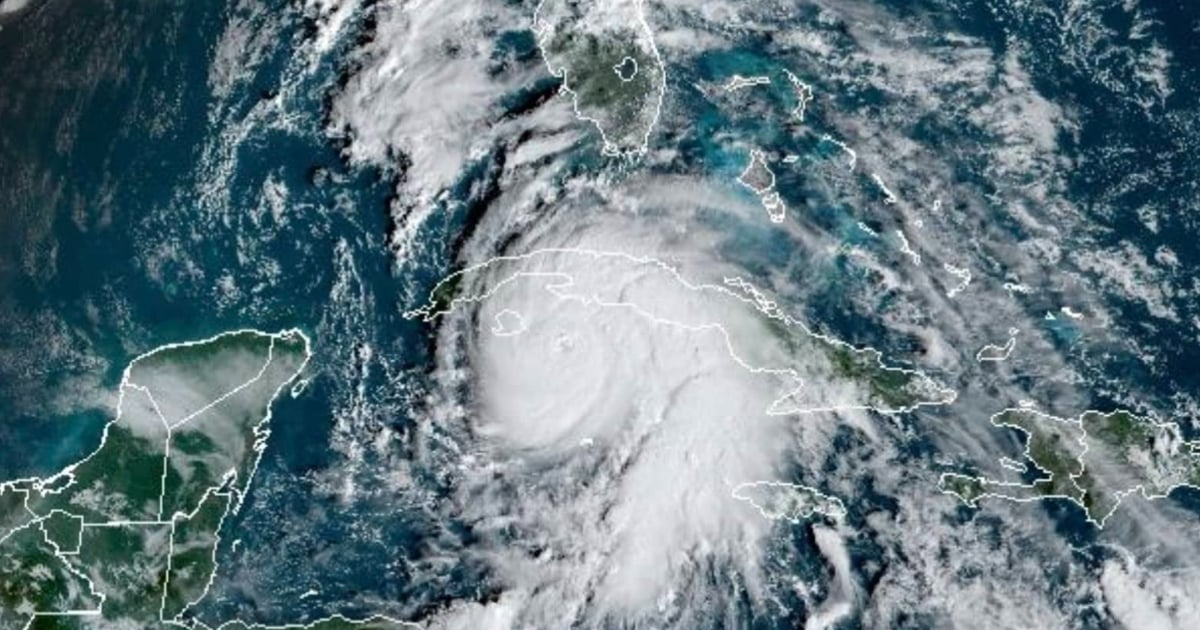
The 2024 Atlantic hurricane season was characterized by intensity and activity above average, according to the latest report from the National Oceanic and Atmospheric Administration (NOAA).
With 18 named storms, 11 hurricanes, and five of them reaching category three or higher on the Saffir-Simpson scale, the year broke records compared to the historical averages (1991-2020) of 14 named storms, seven hurricanes, and three major hurricanes, according to NOAA.
The Accumulated Cyclone Energy (ACE) indicator, which measures the strength and duration of storms, recorded a 34% increase compared to the historical average, highlighting the intensity of the events in 2024.
According to the official U.S. Weather Agency, during the month of November, cyclonic activity was also above normal, with the formation of three named storms.
Among them, Rafael stood out as a Category 3 hurricane that wreaked havoc as it passed near Jamaica and the Cayman Islands, before making landfall in western Cuba.
This phenomenon exceeded the usual statistics, which indicate that November typically experiences a tropical storm once every one or two years and a hurricane every two years.
In addition to Rafael, the storms Patty and Sara also made their mark. The former affected the Azores, while the latter lingered near the coast of Honduras before making landfall in Belize.
On the other hand, NOAA noted that the 2024 season will be marked as one of the most active and devastating in the Atlantic.
Cuban meteorologist Raydel Ruisánchez explained on Facebook that the 2024 hurricane season resulted in 378 deaths and economic losses exceeding $140 billion, making it one of the most expensive in history.
Among these systems, two were Category Five hurricanes, a phenomenon that had only been recorded in five previous seasons (2005, 2007, 2017, 2019).
Hurricane Beryl broke records as the earliest recorded Category Five cyclone, while Cyclone Milton was the fifth most intense in the Atlantic basin and the most powerful worldwide this year.
Among the most impactful cyclones is Helene, which made landfall in Florida on September 26 as a destructive Category Four hurricane, causing over 150 deaths and massive damage from the Gulf of Mexico to the mountains of North Carolina.
Frequently Asked Questions about the 2024 Atlantic Hurricane Season
How many storms and hurricanes were recorded in the Atlantic hurricane season of 2024?
During the 2024 Atlantic hurricane season, 18 named storms and 11 hurricanes were recorded, of which five reached category three or higher on the Saffir-Simpson scale, exceeding historical averages (1991-2020).
What records were broken during the 2024 hurricane season?
The 2024 season broke several records, including Hurricane Beryl as the earliest recorded Category Five cyclone and Hurricane Milton, known for its rapid intensification, being one of the most intense storms in the Atlantic. The overall intensity of the season was also notable, with a 34% increase in Accumulated Cyclone Energy (ACE).
How did Hurricane Helene affect the United States?
Hurricane Helene struck Florida as a Category Four hurricane, causing over 150 deaths and massive damage from the Gulf of Mexico to the mountains of North Carolina. It was recognized as the deadliest hurricane in the United States since Katrina in 2005.
What impact did hurricanes Oscar and Rafael have on Cuba?
Hurricanes Oscar and Rafael had a devastating impact on Cuba. Oscar, a Category One hurricane, severely affected the eastern region, while Rafael, a Category Three hurricane, struck the west, causing widespread destruction of homes, power outages, and significant losses in agriculture, exacerbating the country's economic crisis.
What were the economic losses during the 2024 hurricane season?
Economic losses during the 2024 hurricane season were estimated to exceed 140 billion dollars, making it one of the most expensive in recent history, due to the damage caused by storms and hurricanes across the Atlantic.
Filed under: